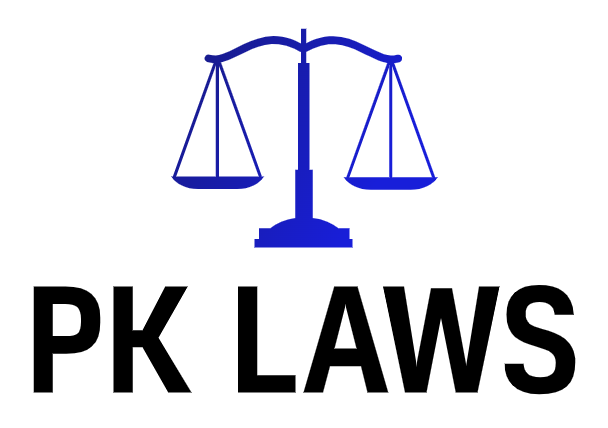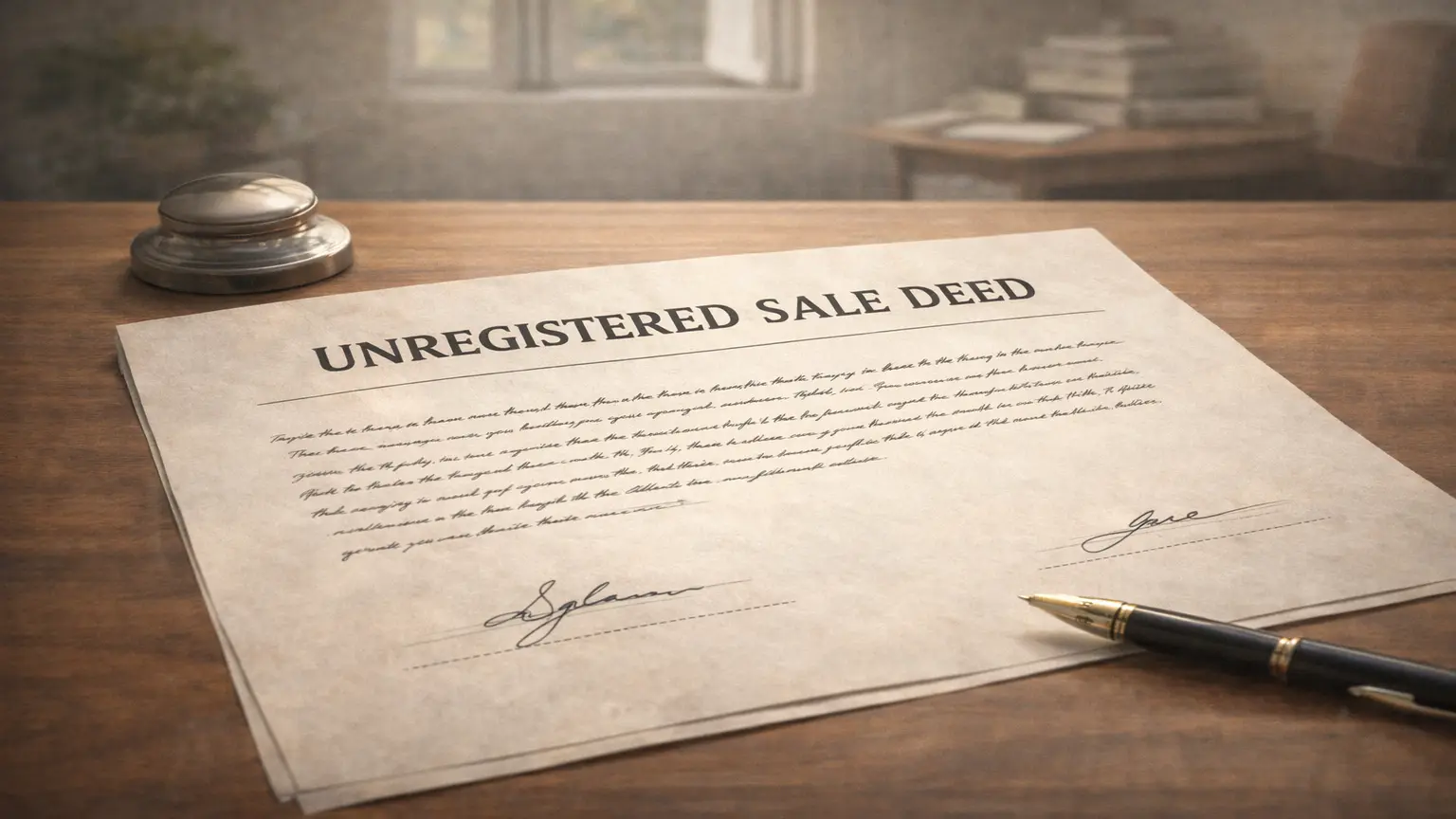As per law, a sale transaction can be made only through a registered instrument and a suit for declaration on the basis of an unregistered deed is not maintainable. Section 54 and 55 of transfer of property act mention certain requirements regarding this. So, where any matter arises out of any transaction which does not fulfil the basic requirements provided under these provisions of law and does not get the sale transaction registered , then the transferor cannot claim himself the owner, and therefore, cannot claim a decree for declaration on the basis of unregistered sale deed from the court.
Whether decree of declaration can be granted on the basis of unregistered sale deed
A transfer of immovable property by way of sale can only be done by a deed of conveyance (duly stamped and registered as per law). It is thus clear that a contract of sale which is not a registered deed of conveyance, would fall short of the requirements of sec 54 and 55 of Transfer of Property Act 1882 and will not confer any title, nor transfer any interest in immovable property. According to said act, an agreement to sell with or without possession is not a conveyance as section 54 of the Act provided that alienation of immovable property can only be made though a registered deed/instrument.
Almas Mandokhail V Ainuddin 2023 CLC 374
Unregistered sale deed doesn’t confer title
As mandated in second part of section 54 of the Transfer of Property Act, an unregistered instrument/agreement to sell would not confer any title upon the vendee in the immovable property. Moreover, the provision of section 49 registration Act, 1908 read with section 17 also come in the way of vendee and he cannot claim a declaration on the basis of unregistered sale deed.
Muhammad Iqbal and others V Mst Baseerat and others 2017 SCMR 367
Section 53-A of T.P.A is a statutory form of the English equitable doctrine of part performance. And section 54 makes it mandatory for selling of immovable property of value of more than hundred rupees to be taken place by an instrument in writing and and registered in accordance with law otherwise the vendee could not claim unqualified rights of ownership merely by pleading and proving the compliance of section 53-A but ignoring the section 54 altogether.
Mst. Akhtar Begum V Mian Aziz and others 1985 SCMR 1617
Where sale between the parties has not been completed, declaration could not be sought rather only course available was to file a suit for specific performance of agreement to sell.
Muhammad Yar Khan V Ajab Khan 2019 YLR 505
Unregistered sale agreement was neither a document of title nor it created right or interest in the subject matter. Declaratory suit on the basis of such document is not maintainable
Fateh Muhammad V Safdar Ali alias Zafar Ali 2019 YLR 1548
What rights an unregistered Instrument confers.
In a case privy counsel held that it is quite clear from the wording of section, it does not operate to create a form of transfer of property which is exempted from registration. It creates no right but merely creates right of estoppel between the proposed transferor and transferee which has no operation against third person not claiming under those persons
S.N.Banerji and another V Kuchwar Lime and stone Co.(LTD.) And another AIR 1941 PC 128
The contention was made before the privy counsel that notwithstanding that the litigant had not chosen to sue for specific performance of the contract and notwithstanding that they had not taken step to complete their title they were nevertheless entitled under section 53-A actively to assert the rights of a proprietor in virtue of the contract. Their lordship rejected this contention by observing that section 53-A does not confer any right of action to the transferee in possession under an unregistered contract of sale. The section is framed so as to impose a statutory bar on the transferor but it confers no active title to the transferee. Any other reading of the section would definitely made a serious inroad on the whole scheme of the Transfer of property Act.
Probodh Kumar Das and others V Dantmara Tea Co.Ltd. and others AIR 1940 PC 1
Equities under Unregistered Instrument
In a case Supreme court held that though a sale in violation of section 54 of the TPA 1882, is not altogether void, however the interest acquired under such a sale as inchoate and imperfect and even such an imperfect transaction give rise to equities in favor of buyer.
Abdul Karim V Fazal Muhammad PLD 1967 SC 411
In another case, it was held that it would be rather anomalous if the position of a transferee in a suit, i.e. whether he has come to the Court as a plaintiff or as a defendant should determine whether he should be accorded recognition of his rights and if he were a plaintiff he should fail but if he raised precisely the same plea if he were a defendant he should succeed. I am of the view that when a transferee by means of a document which has not been registered, though under the law that document was compulsorily registrable, comes to Court as a plaintiff and bases his claim on part performance, of the contract of transfer, he is using the part performance of the contract as a shield and not as a sword as his object is only to defend his own title and not to attack the title of anyone else.
Inayatullah and others V Shah Muhammad and others PLD 1961 Lah. 372
Exceptional Case for Declaration on the basis of Unregistered Sale Deed
In the case of Pakistan Employees Co-operative Housing Society Ltd., Karachi v. Mst. Anwar Sultana and others P L D 1969 Kar. 474 another Division Bench affirmed the enforcement of rights under an unregistered agreement partly performed by plaintiff. The upshot is that in such a case, on other conditions being satisfied the plaintiff can be granted the declaration that the he is in possession of the property under an enforceable contract of sale in his favor and that defendants Nos. 1 and 2, and persons claiming under them are restrained from interfering in their possession.
Mst. Akhtar Begum V Mian Aziz and others 1985 SCMR 1617
Relevant Laws And Statutes:
The Specific Relief Act, 1877
The Transfer of Property Act, 1882
The Registration Act, 1908

